Tag: Neil Gaiman
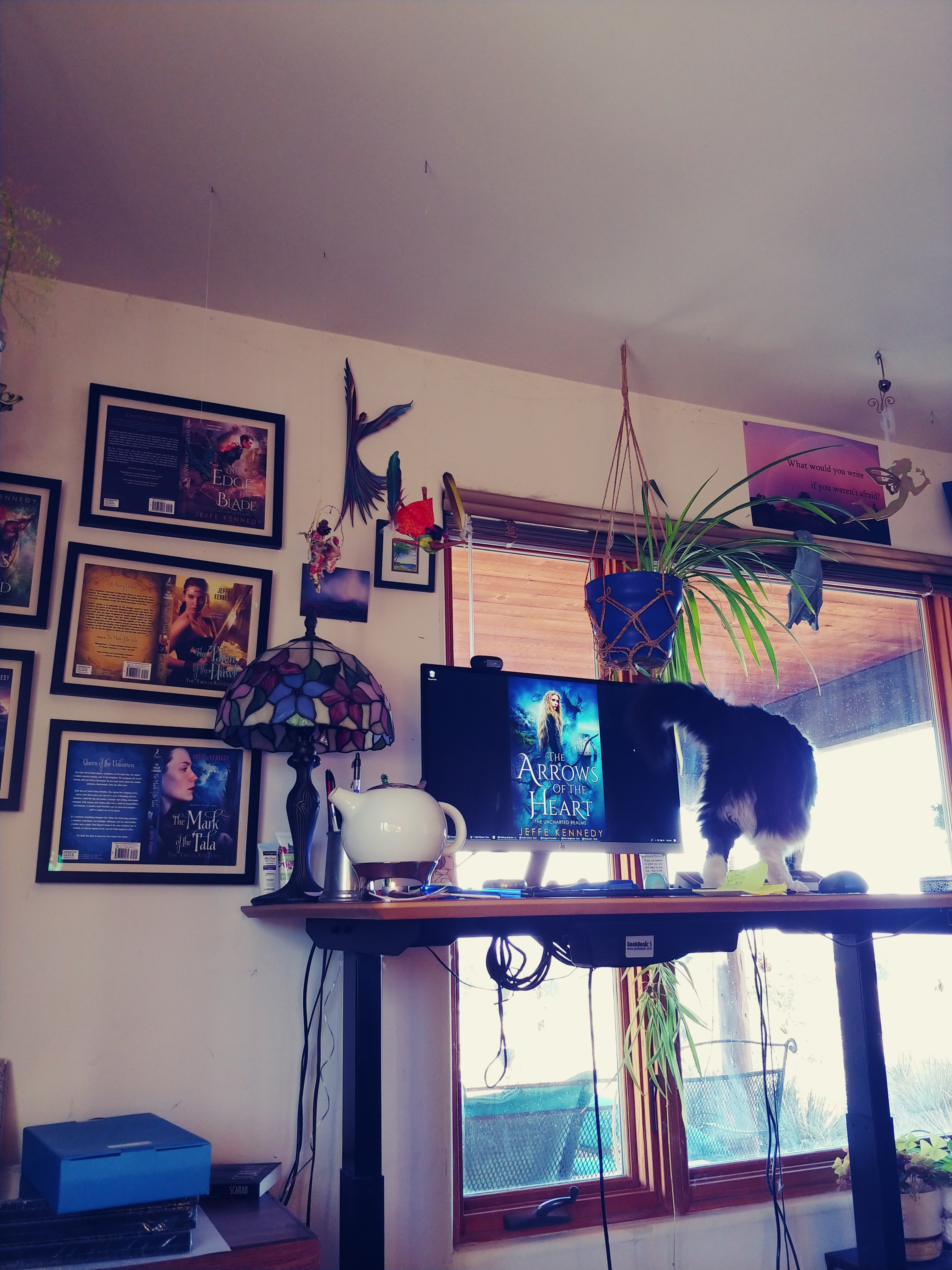
First Cup of Coffee – December 5, 2018
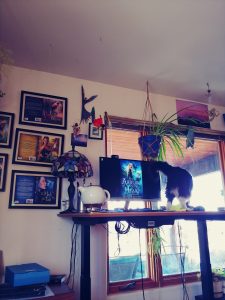
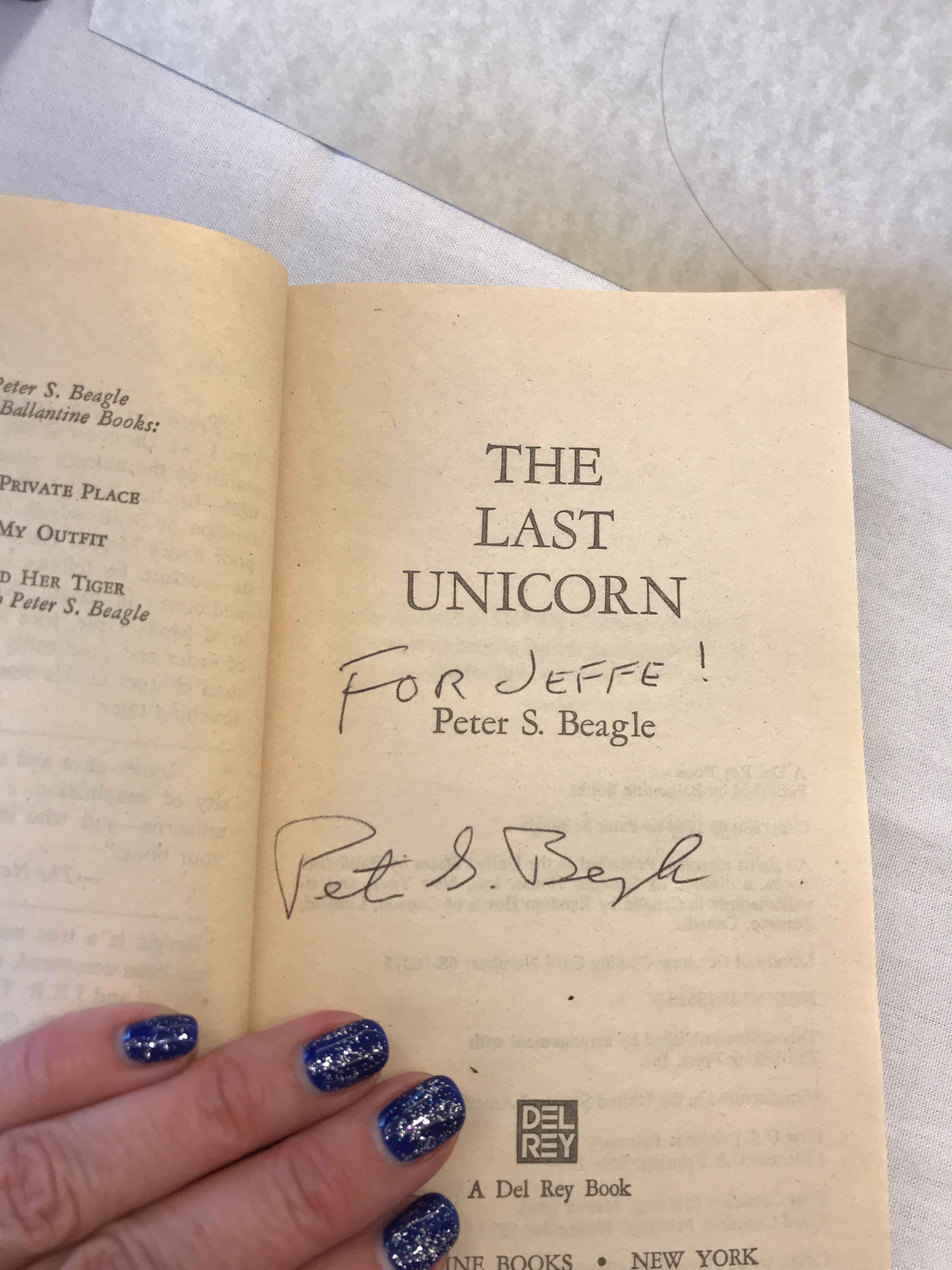
A Better Answer to: Where Do You Get Your Ideas?
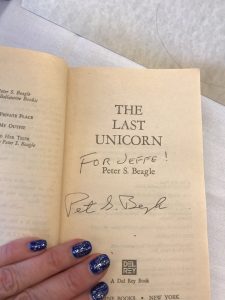
Last week I attended SFWA’s Nebula Conference and got to meet our 2018 Grandmaster, Peter S. Beagle. I legit teared up when we talked and he signed my battered old copy I received forever and a day ago. I felt like a teenager again and all those feelings that led into my early love of fantasy rose up and swamped me.
The conference in 2019 will be at the Marriott Warner Center in Los Angeles. I highly recommend it! It’s become my absolute favorite gathering of SFF writers and industry professionals.
Our topic this week at the SFF Seven is “Where do you get your ideas – the least popular question ever.” Come on over for three avenues I rely on for ideas.
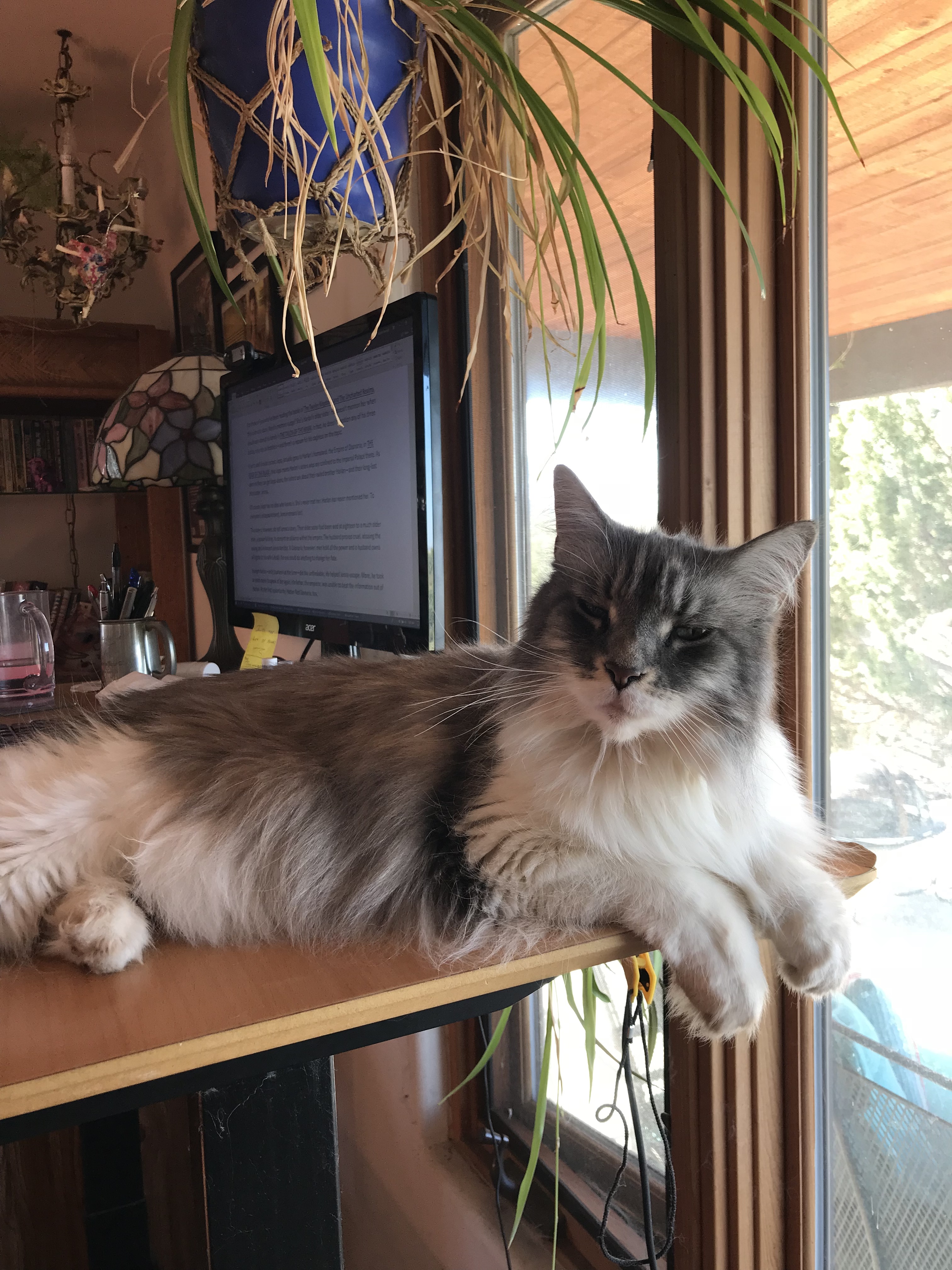
“If You’re Bored, Your Readers Will Be Too”
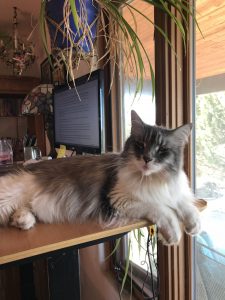
Isabel as gatekeeper. You shall not pass.
I hear the titular advice a lot: “If you’re bored, your readers will be too.” It’s that kind of advice you see on inspirational posters. It’s simple enough to fit in a small space. It sounds good at the outset. And, like, many of those, it’s not very helpful.
In this case, I think it’s actually the kind of bad advice that can cause real problems because it’s absolutely not true.
See, writing is a painstaking process. Especially writing a longer work like a novel. Even for people lucky enough to write fast, or on those fantastic days when the words pour out, there’s days when the writing isn’t like that. And there’s revision, which can be torturous. If you write a lot, then you perforce spend a lot of time writing. It’s absolutely unreasonable to expect to be thrilled and fascinated every moment of the process.
Certainly not at the level you hope the readers will be.
This is the key, so I’m going to all cap it. Because, what else is the Caps Lock key for?
READING AND WRITING ARE DIFFERENT EXPERIENCES.
Do I need to say it again for the people in the back? I’m guessing no, because we all recognize that this is true. There are few more contradictory feelings for an author than releasing a book we spent the last six months or a year writing and at various levels of editing, only to have readers message within hours that they LOVED it and when is the next one coming out? On the one hand, it’s fabulous and exhilarating that people are so excited for the story that they read it immediately. There’s really no greater compliment. (So, Readers – don’t stop! That’s not what I’m saying.) On the other hand, however, it’s daunting that readers can devour so quickly what takes so long to produce.
Which is why this whole “if you’re bored, the reader will be, too” thing is a false equivalence.
What it takes me a day of work to write might feel like a slog. Let’s say I write 3,000 words/day, which is my usual goal. At my typical average of 271 words/page (this is remarkably steady across all my work), that’s about 11 pages. (That’s in Word, Times New Roman 12pt, double spaced, 1″ margins all around.) How fast do you read 11 pages? At the average reading speed of 200 words/minute, that takes 15 minutes to read what I spent hours drafting. And that’s not counting any of the editing that comes after.
OF COURSE my experience is slower and less exciting!
Neil Gaiman says that writing a novel is a lot like paving a road with bricks. (I think this was on his Tumblr – I haven’t been able to find it again. If anyone knows, please link me to it! Edited to add, I asked him on Twitter and he suggested this post, which isn’t exactly how I recalled it, but is full of awesome.) He says it can be like laying down one brick after another, slowly making progress. Laying bricks is, by nature, tedious. Painstaking, even.
You don’t go into brick-laying for the thrills; you do it because you want a paved road.
Same with writing.
If you’re bored, that’s okay. Keep going. Seek the next brick, layer on the mortar, carefully set it in place. Keep going.
If you do your job right, the reader will cruise along on a smooth road, never guessing what it took to put it there.
Exactly as it should be.
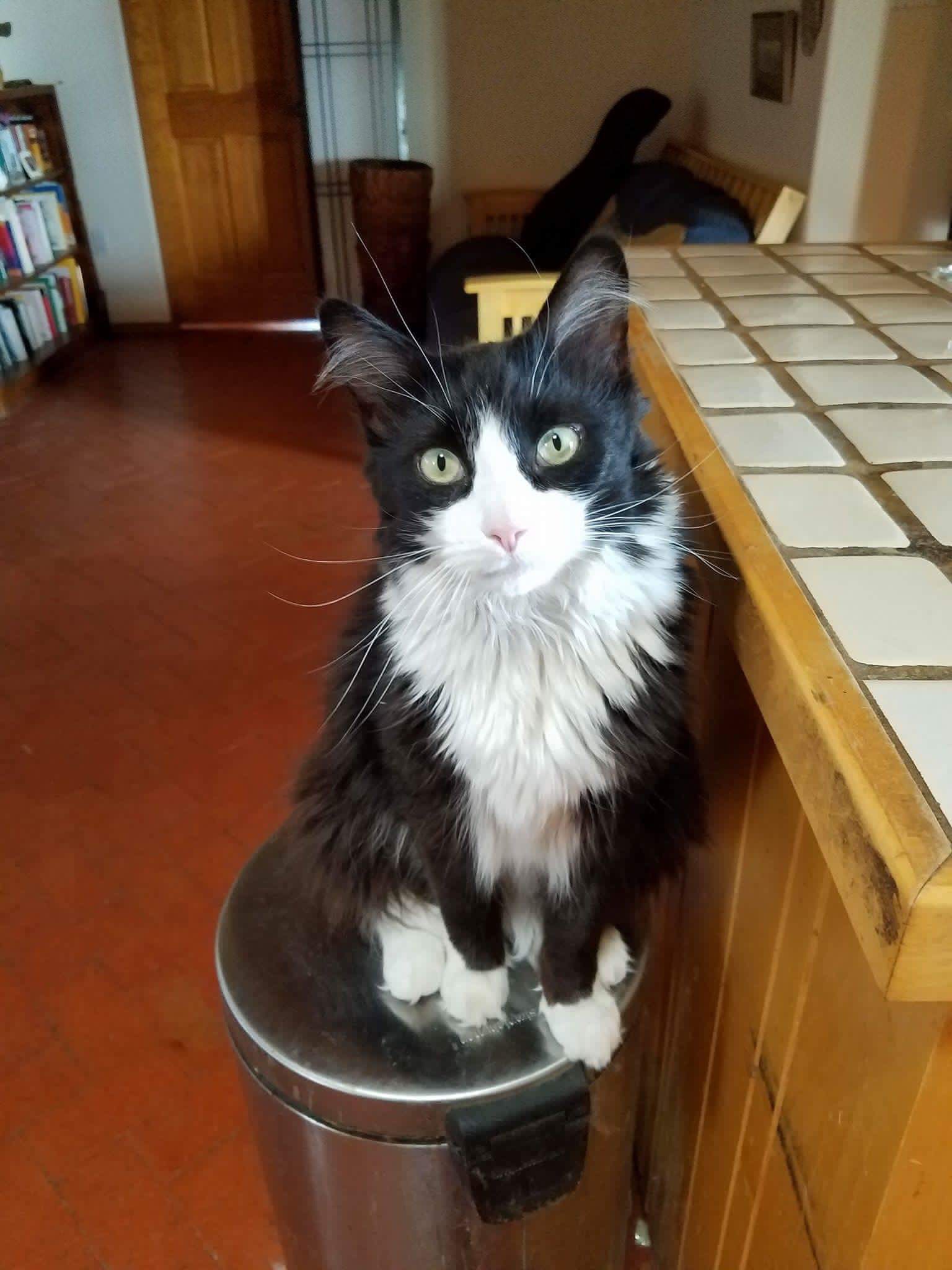
What Blender Setting Do You Go For?
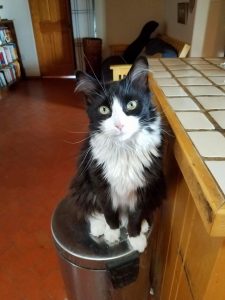
We’ve been on a long road trip this last week, seeing all kinds of family. And leaving the cats behind, like the monsters we are. Here is Jackson showing off his best Pitiful Abandoned Kitty face.
Thus, I’m late posting today. But so it goes!
I’ve shared this news elsewhere, but I’m happy to share again here! Many of you have asked what I’m up to with various writing projects, including a few delayed ones. (Yes, the next Sorcerous Moons books are coming – I promise!) Basically what happened is that I changed agents back in February/March. And then I worked up something entirely fresh for New Agent Sarah Younger. Basically I gave her a list of ideas, we debated them, and I wrote 100 pages of one of her top three choices – the one I loved best. We went back and forth on it with several revisions. That’s a great benefit of working with an agent as sharp as Sarah. She gave me great feedback on the book, tightening it up and making it the best it could be. Basically we spent three months working on this.
Which meant I kept setting aside other writing projects to work on the next round of THRONE OF FLOWERS, THRONE OF ASH. Thus my entire schedule getting delayed and shuffled. The beautiful part is, when Sarah took this out on submission, we had tons of interest, multiple offers, and a sale two weeks later. And here it is!!
These books won’t start coming out until 2019, so now I can go back to a regular schedule. Which absolutely means finishing both the Sorcerous Moons and Missed Connections series. The other thing that happened is that Kensington, who published my Twelve Kingdoms and Uncharted Realms books, started up a new SFF (Science Fiction and Fantasy) imprint. They wanted to publish THE SHIFT OF THE TIDE, but that would have delayed its release until March of 2018 and I knew you all would have fits. (See? I do love you and want you to be happy. I really do!)
So, we said no on that, but they really wanted me to be part of this new imprint, so we settled on me writing a trilogy for them set in the Twelve Kingdoms world. It will be high fantasy, which means less of a romance arc. BUT, I’m pretty sure it will be Jenna’s story. For those of you who know what that means! We finished talking about that right before the other submission, so that got announced at the same time.
All that taken care of, our topic this week is Scrapbooking—taking stories from real life as the springboard for your stories and subplots. Come on over to get my take on blender settings.
On Further Serendipitous Hijinks
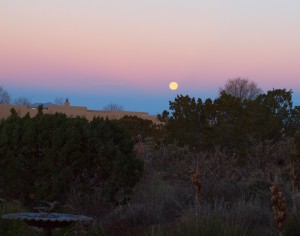 We had fierce dust storms in New Mexico yesterday, which at least makes for amazing sky colors. Here’s the nearly full moon setting at sunrise – still one of my favorite sights.
We had fierce dust storms in New Mexico yesterday, which at least makes for amazing sky colors. Here’s the nearly full moon setting at sunrise – still one of my favorite sights.
So, yesterday I had an interesting moment. Kind of a continuation of this run of serendipity despite sad events. It’s really been a strange few weeks, with many highs and lows.
At this point we’re packing up to make the long road trip for R’s funeral. He was David’s brother, who died much too young from cancer. We’re hoping to drill through a few windows in the winter storms twixt here and there to gather with our extended family on David’s side. One of those people is our daughter, whose birthday was on Monday. A happy note is that we’ll be able to give her birthday presents in person, a rare event these days.
Yesterday, David and I went into town to shop for her gifts. We found the Perfect Thing after several stops. Once we had that, I made an impulsive excursion to buy a vital accessory. I went to my favorite place to buy that accessory – can’t tell you where in case a certain birthday girl reads this – which, like Saturday’s excursion, involved hijinks through different parking lots.
I was standing at the counter, buying my stuff, when out of the sitting area came… guess who? Yeah – Neil Gaiman. He smiled at the counter gal helping me, nodded at us both, saying thank you and good evening.
I managed not to have a fangirl meltdown. But it was close.
And no, I didn’t introduce myself. I chickened out. And besides, that would be *really* stretching my Meet Your Heroes luck!
Still, can you all believe it? My timing is just… I don’t know what to make of it.
Never mind that the counter gal friend of mine tipped me that Neil comes in most days. I may have found my new favorite hangout.
Oh, and Harlan is again up for your voting pleasure in the Ultimate Hero smackdown. You can vote all day, as many times as you feel moved to do so, today – March 23, 2016 – until midnight US Eastern Daylight Time. 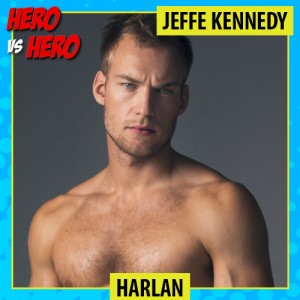
Cheers, everyone!
This Is Voice
 Santa Fe had a mass ascension of our own this morning, as the fog lifted out of the valley. Just gorgeous.
Santa Fe had a mass ascension of our own this morning, as the fog lifted out of the valley. Just gorgeous.
I had a very interesting experience recently regarding voice that I thought you all might be interested in.
Writers talk a lot about voice. There’s all kinds of debates and classes about it, thoughts and rules. Inevitably every convention – for readers or writers – will have a panel or workshop on the topic. Clearly it’s not an easy concept to define. Or rather, we all kind of know what it IS – just not how to explain it to someone else.
In general, voice is what readers will love about an author’s work, regardless of genre. We recognize it when we settle into a new release by a favorite writer, or into one of our comfort reads from her. We sink into that world and voice with a sense of delight and kinship. It’s kind of like love – we sense it, but can’t force or constrain it.
So, I’ve been watching old Taylor Swift documentaries and concerts. There are REASONS for this. She only came onto my radar with last year’s album 1989. Which I love, love, love. Before that I thought of her as a teeny-bopper Country & Western star and had never paid attention. Also, I’m not much for C&W music. I almost never hear it. David is even more definitive about it than I am. He hates the twang and, as soon as it comes on the radio, he switches stations.
Then Taylor crossed over into pop, produced this tremendous album – that I only listened to because so many of my writer/agent/editor friends loved it – and I fell in love, too. Imagine my surprise, then, when I recognized one of Taylor’s early C&W songs. It was one I’d improbably heard a few times and really enjoyed. It stuck with me, though I had no idea who sang – or wrote – the song. (That older song of hers was Our Song, for those interested.) But the lyrics, the cadence, the sensibility behind it, had all grabbed me – in the exact same way her songs in a different musical genre did years later.
This is voice.
Within the same couple of weeks, something else similar happened. I’ve mentioned more than once on this blog my mad love for Amanda Palmer. I think she’s a brilliant singer and songwriter also. And if you’re out there shaking your head about me liking both Taylor Swift and Amanda Palmer, then you’re not paying attention.
So, one day I wanted to send a friend a snippet of the lyrics to The Ship Song. As you do. She’d quoted Jimi Hendrix’s Little Wing and that song was covered by Concrete Blonde on their Still in Hollywood album, back in 1994, along with The Ship Song. They have a similar feel, making them forever connected in my mind and that one of my favorite albums of all time. So I looked up the lyrics to The Ship Song, to be sure to get them right. Guess what? Amanda Palmer wrote that song. I never knew it and didn’t discover Amanda Palmer until she connected with favorite writer Neil Gaiman in 2009. I loved her work before I knew who she was, just like Taylor. And I love Neil Gaiman’s writing – and Neil and Amanda connected first as artists, then as lovers and spouses.
This is voice.
This is what makes us who we are, as human beings. The questions we ask, what we seek to answer, the stories we tell – these all come out of our deepest selves. More, I think we’re attracted on some profound level to those others who are in the same place, asking and answering about the same things. We connect with each other, as readers, as listeners, as writers and musicians.
This is voice.
Do We Have to Love Our Characters?
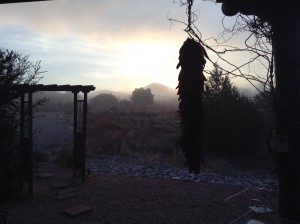 A piece of writing advice I often see tossed out there is that you must love your own characters, if you want your readers to love them. A parallel bit of advice is that a writer must be interested in the scene she writes in order to create interest in the reader. Every time I see this sort of thing, I pause and ask myself if I think that’s true.
A piece of writing advice I often see tossed out there is that you must love your own characters, if you want your readers to love them. A parallel bit of advice is that a writer must be interested in the scene she writes in order to create interest in the reader. Every time I see this sort of thing, I pause and ask myself if I think that’s true.
I’ve decided that I really don’t.
I think this is a kind of false logic that springs from observations on the relationship between art, artist and viewer that I talked about a few days ago while discussing how to write vivid characters. Basically it’s the idea that our conscious understanding of what we’re trying to show as artists subconsciously affects the viewer (or reader, play-watcher, etc.). I observed long ago in directing a play that where I was muddy in how I understood the story, so was the audience. I do think this is a real phenomenon.
What’s not so real is the conflation that our emotional reaction to the work – love, fascination, what-have-you – will also manifest in the final product.
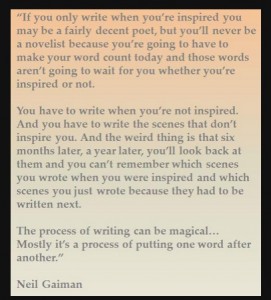 I’m not sure why it doesn’t work this way, but from my own experience, and from what other writers have said, it simply doesn’t. Neil Gaiman has written about this before and I can’t find the direct quote right now (updating to say I ran across it – posted in pic), but particularly for novel writing, there are long slogs where the writer might be bored out of his mind. Neil suggests that a writer who wants to feel constantly engaged by her own work might make a good poet, because poems are short enough. A novelist, however, he points out, has to have more endurance. It takes a long time to write a novel. I’ve calculated that I can write steadily at an average of 1,700 words per day, including days off and intervening edit rounds on other works. This means it takes me approximately 70 days to write a 120K word novel. That’s pretty fast, I’m reliably informed. It also works out to about 3 months writing the story.
I’m not sure why it doesn’t work this way, but from my own experience, and from what other writers have said, it simply doesn’t. Neil Gaiman has written about this before and I can’t find the direct quote right now (updating to say I ran across it – posted in pic), but particularly for novel writing, there are long slogs where the writer might be bored out of his mind. Neil suggests that a writer who wants to feel constantly engaged by her own work might make a good poet, because poems are short enough. A novelist, however, he points out, has to have more endurance. It takes a long time to write a novel. I’ve calculated that I can write steadily at an average of 1,700 words per day, including days off and intervening edit rounds on other works. This means it takes me approximately 70 days to write a 120K word novel. That’s pretty fast, I’m reliably informed. It also works out to about 3 months writing the story.
Am I always entranced by every scene I write? No.
Will I experience every emotion I write? Not at all.
Do I always love my characters? Not by a long shot.
Now, some days I do! Sure, sometimes I cry while writing, or feel in love with my characters. Other times it’s like laying down bricks on an endless road. This is why what Neil said resonates with me. He noted this same thing, that there can be long periods where the writing feels dreadfully dull and not at all engaging, and – most salient – that when he goes back and reads the final work, he can’t discern which parts he wrote while loving it and which while slogging through.
I have experienced exactly this thing.
So, no – you don’t have to love your own characters. Just as, I might be going out on a limb here, we don’t always feel gushing love for our spouses every minute of every day. But what we do have is commitment to them. In a long-term relationship, we stay the course and feed the parts we want to grow. Writing a novel requires the same commitment. Don’t expect to love every moment, every nuance. Stay the course, feed the work and trust in yourself as an artist.
Do the work and the love will follow
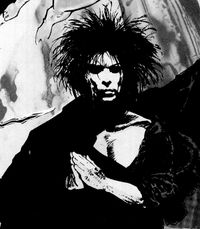
Enter the Sandman – Working Paranormal Elements into Other Genres
 Today at the Fantasy, Futuristic and Paranormal blog, I’m talking about my upcoming release, UNDER HIS TOUCH, and why I incorporated elements of the Dream King from Neil Gaiman’s Sandman.
Today at the Fantasy, Futuristic and Paranormal blog, I’m talking about my upcoming release, UNDER HIS TOUCH, and why I incorporated elements of the Dream King from Neil Gaiman’s Sandman.
Five I’m Still Thinking about – Jeffe’s picks for interesting reads of the year
 I’m over at Word Whores, talking about the five books (or series of books) that really engaged and stuck with me this year.
I’m over at Word Whores, talking about the five books (or series of books) that really engaged and stuck with me this year.


